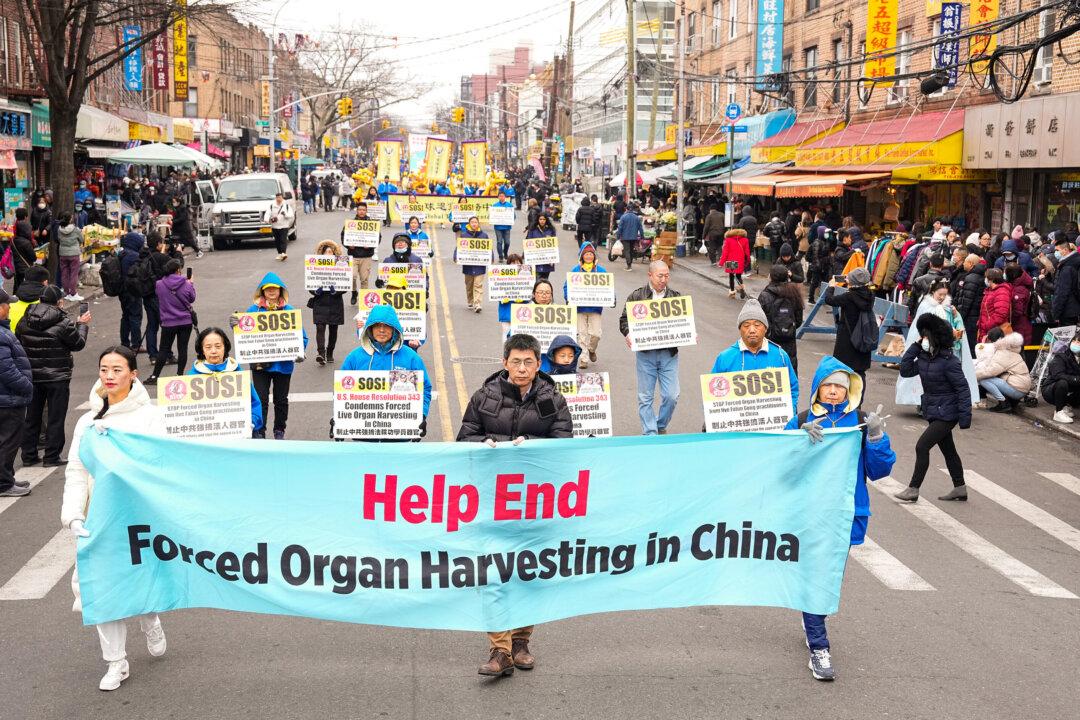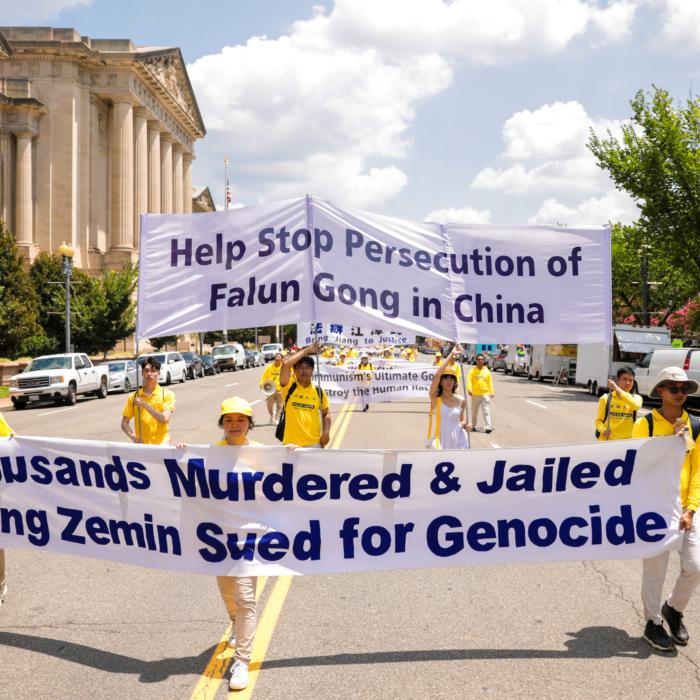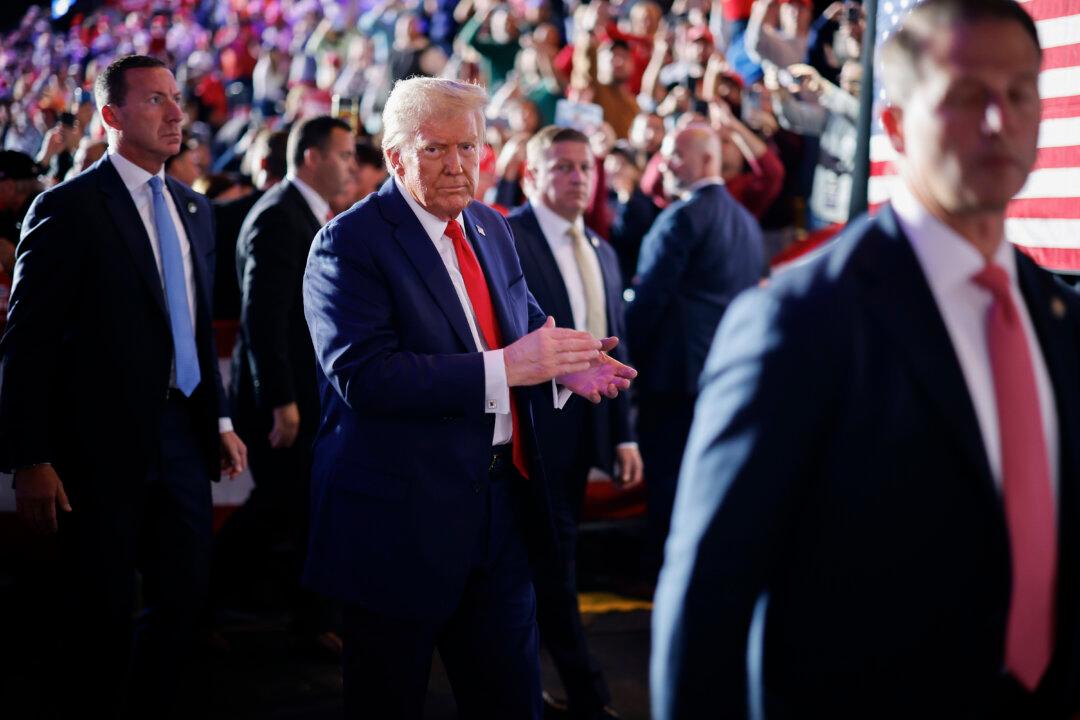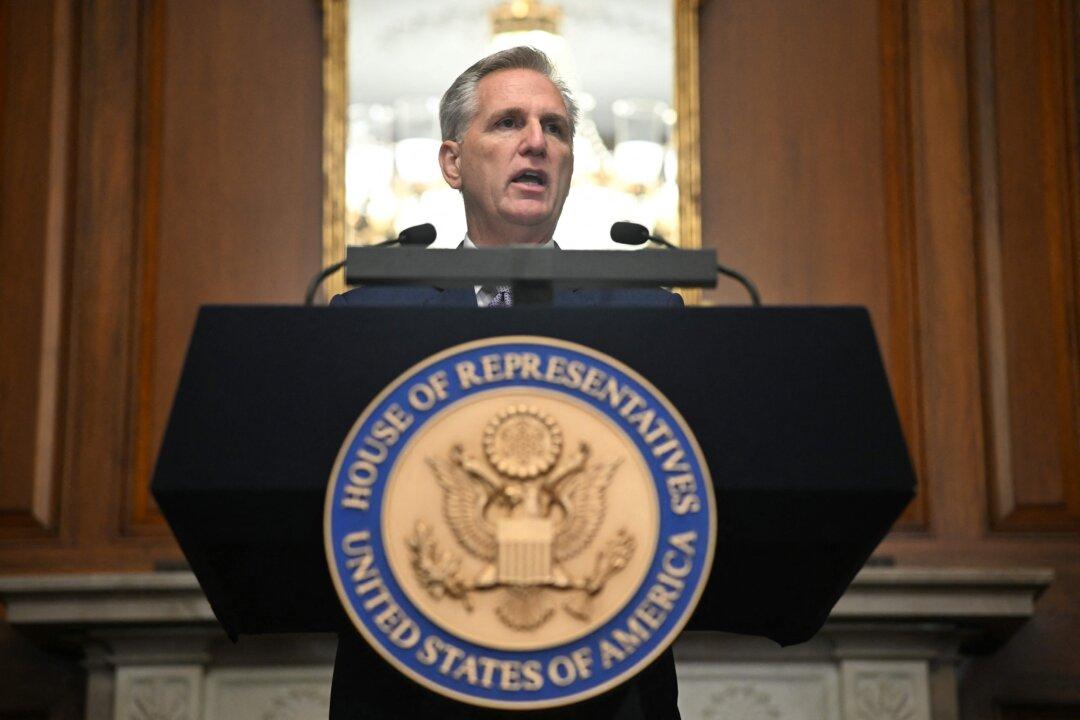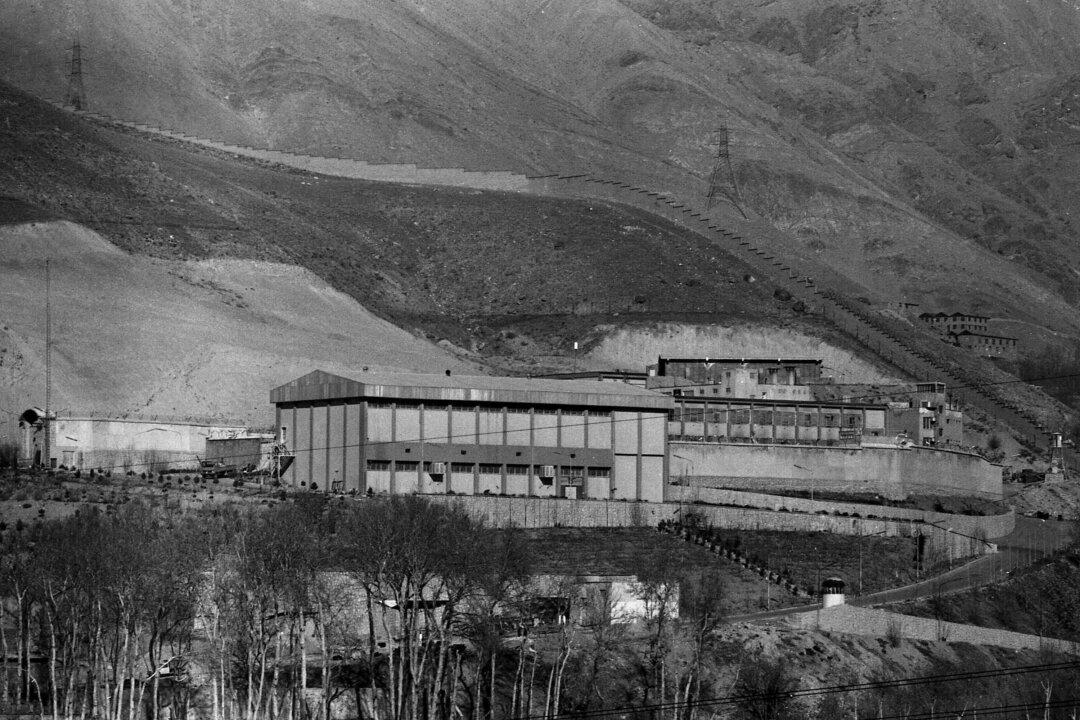Falun Gong emerged in China in 1992, a time of a spiritual renewal in a land still under communist rule, but one recovering from the horrors of Mao Zedong’s Cultural Revolution. Drawing on Buddhist traditions, Falun Gong combined meditation and tai chi-style exercises with a moral philosophy centered on the tenets of zhen, shan, and ren (truth, compassion, and tolerance).
Originating in the northeastern city of Changchun, the practice spread by word of mouth across the country. By the end of the decade, an estimated 70 million to 100 million people were practicing. But in the summer of 1999, Chinese leader Jiang Zemin set up an office specifically to persecute Falun Gong followers, and put Vice Premier Li Lanqing in charge of the effort. The regime labeled the practice a dangerous “cult” and proclaimed it a threat to the Chinese Communist Party (CCP). And threats to the CCP must be eradicated.
On the night of July 22, thousands of Falun Gong followers were rousted from their beds, arrested, beaten, and incarcerated. Their texts were burned in bonfires in cities across the country and their exercise routines banned. As supporters resisted, Chinese authorities ratcheted up the persecution. On Nov. 30, 1999, some 3,000 Communist Party functionaries were summoned to Beijing’s Great Hall of the People, where the vice premier revealed the regime’s plans for Falun Gong: “Defame their reputations, bankrupt them financially, and destroy them physically.”
‘No Physician Would Dare’
The discussion among democratic nations about “decoupling” from Beijing over human rights presents a basic conundrum: How much leverage does the West really have over a nation on which it relies for basic necessities, including medical and technological supplies? This problem became acute—and a hot-button political issue—during the COVID-19 outbreak and the ensuing pandemic.But human rights experts and religious freedom advocates have tried to draw attention to a far grislier supply-chain crisis that Beijing has controlled and secretly cultivated for years as the United States and other nations turned a blind eye to its horrors, despite a growing body of evidence.
Nearly a year ago, however, the American Journal of Transplantation, the leading medical transplant publication in the world, made it impossible to ignore.
When Robertson, a fluent Mandarin speaker, translated an initial set of documents and shared them with Lavee, the Israeli surgeon’s initial reaction was disbelief.
“I remember telling him out front, ‘You got it wrong, mate.’ But then those papers kept piling [up], and we both were flabbergasted by our findings,” Lavee told RealClearPolitics (RCP). “No physician would dare do these organ procurements without first ascertaining the donors were indeed brain dead, and yet they not only did—but put it in writing.”
Other leading researchers have painstakingly documented a reprehensible aspect of these life-ending extractions: that prisoners of conscience—religious minorities and political dissidents—are the main victims.
Seeing Through China’s Deception
Pressure is growing in the United States and abroad to condemn the ghoulish organ extractions and take steps to ensure that responsible nations and medical institutions disentangle themselves from any involvement in or financial support for China’s organ supply chains.In an even more dubious proposition, after the international outcry over its use of prisoners for the vast majority of its organ transplants, China said it had managed to rapidly increase its volunteer registry from virtually none in 2015 to nearly 1.77 million in 2019.
More than 12 years prior, allegations had begun to surface that many Falun Gong followers had been killed to supply China’s organ transplant industry, although the evidence now suggests it began at least six years earlier. China has long denied pursuing this heinous policy, and until the last few years, a lack of transparency made the charges nearly impossible to verify.
Sam Brownback, who served as ambassador-at-large for the U.S. Commission on International Religious Freedom during the Trump administration, likened the effort to document and amplify China’s organ harvesting on religious minorities to British politician William Wilberforce’s early efforts to uncover the horrors of the slave trade in the late 1700s.
“The key to any social movement is to put it right in people’s faces,” Brownback, who is writing a book on China’s long history of religious persecution, told RCP. “It wasn’t until William Wilberforce took people on tours of slave ships and let them smell them and see them that it really started turning the tide.”
As evidence builds, support for more U.S. and international action against China’s grim organ harvesting is growing in Washington as Congress tackles several aspects of China’s malign activities.
“There’s a greater willingness in Washington and around the world to acknowledge that China is dissembling, is secretive, is manipulating data—and they are doing that with their [false] claims of a voluntary donor organ system,” Nina Shea, human rights lawyer and director of the Center for Religious Freedom at the Hudson Institute, told RCP.
Launching a Boycott
For the first time, a prestigious international medical organization recently stepped up to roundly condemn China’s organ harvesting practices and has backed up its statement with action against China. Last year, the International Society for Heart & Lung Transplantation, or ISHLT, issued a declaration acknowledging that China executes prisoners to harvest their organs for transplantation. As a result, doctors will no longer be able to publish their research in the society’s medical journal or present the results of their work at its annual conference. Human rights advocates tout the new ethics policy as the model all other transplantation-related societies should follow. Such a boycott, however limited for now, is no small matter, those leading it contend.“We know that such an academic boycott is significant because China does not like to be held away from these international medical forums,” Lavee told RCP in a lengthy interview. “So hopefully, maybe there will be a similar organization, like the American Transplantation Society or another that will follow.”
“This is a significant development,” Robertson said last year during testimony to the Tom Lantos Human Rights Commission, a bipartisan House panel. “Dr. Lavee, my co-author, helped to make that happen. And I think it’s those types of efforts from professional organizations that will move the needle.”
“One Uyghur man said he drove by the crematorium every day, and the smell was a common complaint among local workers,” Guttmann told Congress last year.
In his book “The Slaughter,” Gutmann shows how the horrific organ removals first took place with criminal executions of all types of prisoners and then ramped up after the Chinese government’s 1999 crackdown on the Falun Gong.
Eyewitness Accounts
Gutmann discovered a strikingly similar pattern through interviews with witnesses from approximately 20 Chinese camps in the heavily Uyghur area of Xinjiang. Between 2.5 percent and 5 percent of inmates disappeared each year, and those who did were usually men of or around 28 years, the age most organs mature and are at their healthiest. Another finding was consistent throughout the camps: All of the disappeared men were wearing brightly colored wristbands or vests—either orange or pink—after a camp-wide health check that included comprehensive blood tests.“And then these people would disappear, and [the other prisoners] were not supposed to talk about them,” Gutmann said in an interview. The growing body of evidence and recognition of China’s chilling organ harvesting activities is encouraging to leading human rights advocates. Some have tracked and helped air the allegations for decades while watching most Washington officials and U.S. business interests turn a blind eye.
“Under Xi Jinping and the Chinese Communist Party, the cruelty of murdering [tens of thousands of] young victims every year—average age 28—to steal their organs is unimaginable,” Smith added. “China’s organ harvesting industry is truly barbaric.”
Considering China’s long history of persecuting religious minorities, the organ harvesting and genocides against religious minorities, however horrifying, don’t come as a complete surprise.
To Tohti, the issue is simple: Chinese Communist authorities don’t consider regular citizens outside of the party elite to be humans with intrinsic value outside of the government’s use or control.
“In the CCP’s eyes, only CCP members are human beings. All others are assets of the state or Communist Party,” he told Congress last year. “Therefore, they can do whatever they want. Using the human body for medical purposes is not new.”
Condemning but Not Confronting
According to Gutmann’s findings, some 65,000 Falun Gong practitioners were murdered for their organs from 2000—2008 alone, long before Chinese authorities started greatly expanding the practice to Uyghurs. In 2020, a group of twelve independent human rights experts appointed by the United Nations declared that they were “extremely alarmed” by credible evidence of organ harvesting from Falun Gong members, Uyghurs and other Muslims, Tibetans, and detained Christians in China. The experts called on China to promptly respond to the allegations of “organ harvesting” and to allow independent monitoring by international human rights mechanisms.American and international policymakers need to see through the deception, Shea argues, and clearly condemn the persecution against the Falun Gong and declare it a genocide. “Had this been done earlier, the Uyghur genocide might never have happened,” she said.
Global forums such as the International Religious Freedom Summit and the IHLTS conference in April have helped draw more attention to China’s organ harvesting from religious minorities.
Despite the broader awareness and public condemnation, it’s far from certain—even amid the current fever pitch against China in Washington—whether Smith’s bill will pass the Senate and reach President Biden’s desk for a signature. Some Chinese dissidents and human rights advocates believe there’s a reluctance to draw a bright line with Beijing because they find such horrific accounts almost too gruesome to be believed.
“It’s like another expression, it’s too good to be true—but the opposite,” Tohti told Congress last year.
The international medical community for years also has failed to push back on Beijing in any meaningful way. The American Society of Transplantation, for example, has stopped short of calling out China or joining a boycott over evidence that it extracts organs from prisoners who are still alive. It maintains this stance even though it owns the journal that published Robertson and Lavee’s 2022 peer-reviewed piece on China’s organ harvesting on prisoners who haven’t been declared brain dead. When asked whether it will join ISHLT’s boycott of Chinese research, a spokesperson for ASTS said that the organization “has always condemned unethical procurement practices” and clarified that the journal operates independently from ASTS governance.
“ASTS has always strongly opposed unethical organ procurement practices, and we are concerned by the study by Dr. Lavee and Robertson finding that procurements in China are happening before the donors are declared brain dead,” ASTS President, Dr. William Chapman of Washington University in St. Louis, told RCP in an emailed statement. “ASTS firmly supports the dead-donor rule.”
Buying Silence
Robert Destro, who served as assistant secretary of state for Democracy, Human Rights, and Labor during the Trump administration, has described a firmly rooted bias at the State Department against calling out China’s human rights abuses because there’s a belief it will do nothing to change China’s behavior and will only lead to more foreign policy tensions between Beijing and Washington.“This culture is deeply embedded in the State Department, and it manifests itself as institutional foot-dragging,” Destro told Smith’s panel last year.
State Department officials, he said, resisted his efforts to convince then-Secretary of State Mike Pompeo to declare China’s persecution of the Uyghur people as genocide. He also said members of the U.S. business community “visibly blanched” when Trump administration officials told them they were serious about halting the import of goods produced by Uyghur forced labor, including solar panels.
But human rights advocates warn that ignoring the barbarity will inevitably lead to even more persecution of millions of people, while adding the moral burden of western complicity—and even financial support—for the repressive practices. For starters, they argue, federal authorities can work to halt China’s transnational surveillance and aggression against Chinese dissidents now living in the United States.
And the U.S. government needs to do far more to ramp up its efforts to break through China’s Great Internet Firewall that prevents its citizens, especially religious and ethnic minorities, from organizing and gaining access to information on the worldwide web.
But far more enforcement of the measure is needed, along with additional visas, travel bans, and targeted sanctions on Chinese officials responsible for religious persecution, proponents say. Human Rights Watch and other prominent activists have urged the United States to do more to ensure that U.S. companies aren’t profiting from selling medical or surveillance products to China.
In 2017, the group discovered that Thermo Fisher Scientific, a Massachusetts-based firm that manufactures analytical and laboratory products, chemicals, and supplies including those used in COVID test kits and vaccines, had sold DNA sequencers to Xinjiang police. Advocates believe the mass DNA collection is used for tracking Uyghurs, as well as organ-matching.
“I cannot underscore how necessary it is to follow the money,” Destro urged. “The Chinese buy compliance—they buy silence.”
